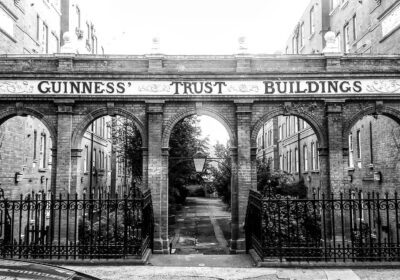One of the interesting things about watching the slow-moving car crash known as Brexit take place is that it affords time to reflect on other national cock ups.
Anyone thinking that this “shit show” is unique should perhaps be comforted by an awareness that our political leaders have got Britain into difficulties before. In fact, there are quite a few comparable moments. I have taken the liberty of collating five which I think are pertinent for today:
1. The collapse of Lord North’s administration, 1782
Then Prime Minister Lord North inflexible approach, arbitrary policy making (sounds familiar) led to the imposition of the deeply unpopular tea duties and a complete breakdown of relations with Britain’s North American colonies.
The resultant War of Independence started relatively well for Britain. But as the years wore on, fortunes took a decided down turn and North’s appetite for continuing the effort faded. The finale was the capitulation of the British army at Yorktown and ignominious surrender. North’s Government lost a vote of no confidence within months.
The separation of the 13 British colonies in North America resulted in the collapse of the British Government and a tarnishing of her international reputation for the next decade. There’s lots of parallels here. Poor policy making, a terrible negotiation strategy and a House of Commons that went into melt down. One difference is that the Government has so far survived a vote of no confidence!
2. Third Battle of Ypres, 1917
“Ah. Would this brilliant plan involve us climbing out of our trenches and walking very slowly towards the enemy?” Blackadder forlornly responds to General Melchet in Blackadder Goes Forth.
This was essentially the idea in taking Passchendaele Ridge. An exercise which resulted in the loss of over 300,000 British soldiers.
What’s disgraceful is the plan was largely the same as the Somme offensive that had taken place just a year before with devastating consequences. The Prime Minister, Lloyd George had grave misgivings but allowed the offensive to continue. The ridge was eventually taken by the Canadians only to be returned following a retreat a few months later.
Once again terrible policy making was extant. Political and administrative failure exacerbated problems and resulted in unnecessary loss of human life. The parallel with Brexit is that the tanker didn’t turn. Even though the British Administration acknowledged the flawed strategy, it continued believing it was the only show in town.
3. Surrender of Singapore 1942
The surrender at Singapore is noteworthy for the disconnect between perception and cold reality. The British considered its position “impregnable”. An investment of £60 million in a modern military base capable defending large scale sea attack gave the Brits false confidence.
Unfortunately, the planners had not considered an invasion from land. This was exactly what the Japanese did upon the outbreak of hostilities. The result was a quick victory and the surrender of over 140,000 British and Singaporean citizens.
The swiftness and scale of the defeat was a huge blow to British morale and Crispin Blunt MP summed up Brexit last month as the most shameful surrender since the fall of Singapore. Perhaps a bit premature as this would imply that Brexit has been settled, which on writing this, it has not.
4. The Suez Crisis, 1956
No British crisis can go by without a reference to Suez. It represents for many the start of a long tail of decline for post-war Britain. Jo Johnson, one of the first Ministers to resign over the Withdrawal agreement cited it.
Prime Minister Anthony Eden’s gamble that the United States would back a joint British and French invasion of Egypt to ensure Western control of the canal backfired spectacularly. Some blame Eden’s health, others the arrogance of the Government. The result: within days of the invasion a very public climbdown and withdrawal overseen by a UN peace keeping force. The repercussions included a run on the pound and the beginning of the end for Britain in the Middle East.
Where Brexit and Suez are similar is Britain’s perceived status in the world. Suez was driven by a view that Britain could still operate as it had done in the 19th century. Brexit in turn, seems driven by a perception that Britain is somehow more global than its European counterparts. Can it diplomatically punch above its weight? Not so, it might be said.
5. The IMF Crisis, 1976
The 1970s was a difficult time for Britain. Industrial action and inflation crippled the country forcing Britain to become the IMF’s first big debtor borrowing £3.6 billion.
The consequence of the loan deal was a requirement to make deep cuts to public spending and a fissure in Government with left wingers railing against their own party policy. The loan itself was repaid quickly and Denis Healey, the then Chancellor later complained that he had been misled by the Treasury as to the extent of Britain’s financial woes.
The crisis was in part a result of divided political parties. A barely functional Government, torn apart by internal factions characterised that Labour administration. This draws parallels with the May Government. It illustrates some of the failings of parliamentary democracy when faced with a national crisis. Ideology seems to trump national well being and the result is deadlock and failure to deliver for the good of the country.
Some conclusions
Whether its statecraft at fault or poor political management, what all these examples have in common is that Britain has got itself in a real pickle before. It becomes apparent that the execution of a poor strategy and the resultant international humiliation is part and parcel of the UK’s history. But it’s how we recover that’s important.
It would seem that Britain has been equally good at getting out of the various holes we have dug for ourselves. Sometimes sadly, this has not been without great cost. But, the fact that the country has been able to move on and refashion itself should give us all some heart. So, what I hope appears acutely difficult today will be looked back upon as a bumpy patch by those of tomorrow.










